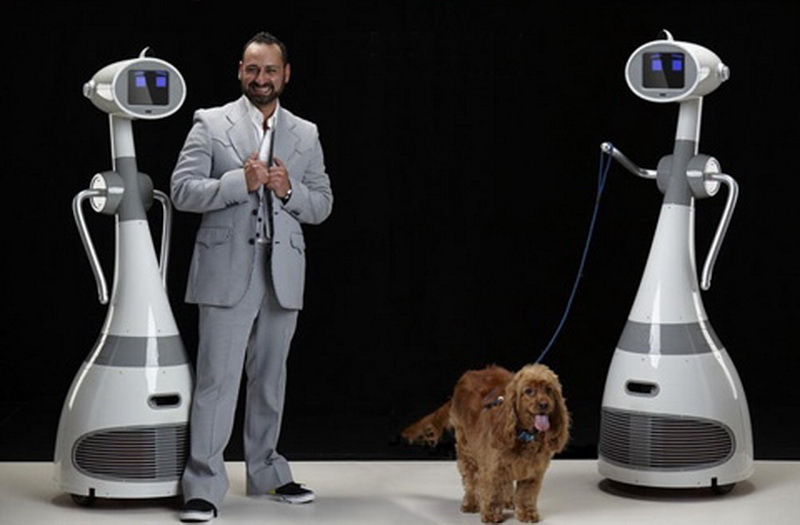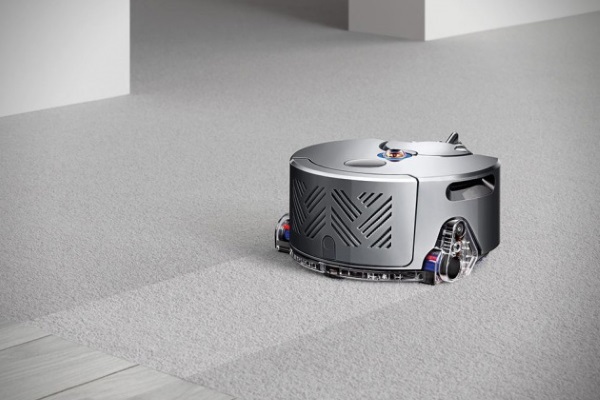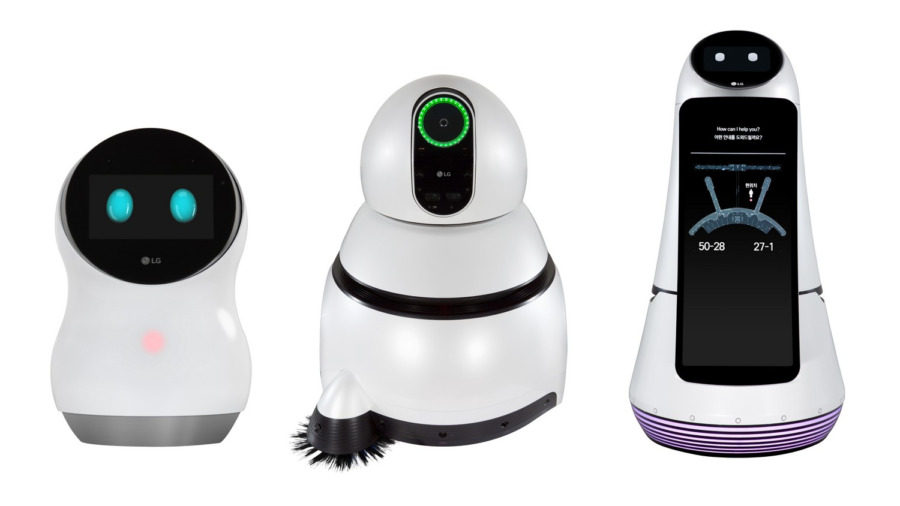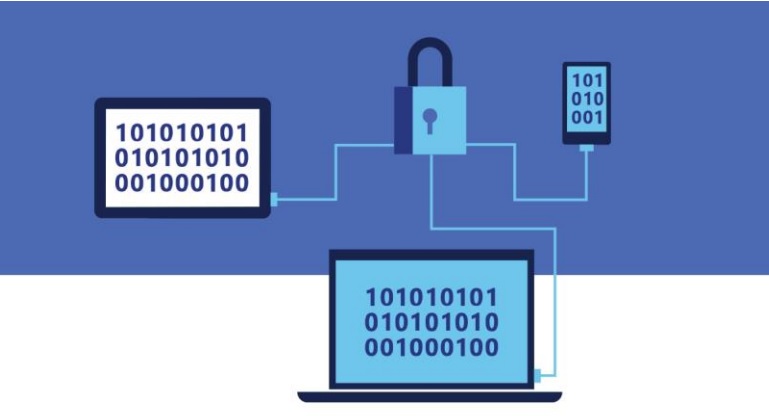Teach him to cook, and get out yourself? Only instead of a raccoon – a robot. And other news …

Amazon prepares a robot housewife
One of the most important components of new developments is the testing of pre-production samples in their natural habitat. All large companies distribute such samples to their employees, who have a real test of viability at home. Under normal conditions, there are no leaks of information, and the public does not see these processes, but sometimes the human factor is triggered, quite reliable rumors appear, and sometimes photographs of devices. This time, hype broke out in the camp of the seller and developer Amazon. According to rumors that have come down to us from respected resources of electronics360 and Bloomberg, the company Amazon plans to populate the homes of its employees with robotic assistants by the end of 2018.

Cleaning robots have long been a part of everyday life.
The secret project is called Vesta (Vesta) after the Roman goddess of family and home. The project is led by Gregg Zehr, who serves as Research and Development Leader at Laboratory 126, Lab126, Amazon, Sunnyvale, California. The secret lab has products such as Echo speakers, Fire TVs, Fire tablets and the failed Fire Phone.

Harmony's highly specialized robot available for £ 15,000
Meanwhile, a company spokesman Amazon told Bloomberg that the company would not comment on 'rumors and speculation.' Let's think together what tasks a home robot can perform at the current stage of technology development. We have computer vision, automatic vacuum cleaners, smart refrigerators, smart kettles, smart washing machines, smart voice-controlled speakers, etc. Obviously, such a robot should be able to handle all the components of a 'smart home', control all devices and control utility connections such as gas, electricity, steam (in batteries), flush the toilet, control the water level in the bathroom, turn on / off light, etc. Is this technically possible? If we say that all devices are manufactured by the same company or comply with the same global standard, then yes, this is possible.

Already almost a real robot from LG within the CLOi project. Left to Right: Smart Column, Smart Vacuum Cleaner, Smart Information Desk
People familiar with the project suggest that the Vesta robot can be a kind of smart Alexa speaker that accompanies the owner around the house (like a wife follows her husband), listens carefully to his wise instructions and does useful work. It was also mentioned that prototypes are equipped with computer vision and can independently move around the house to monitor its condition.
The mysterious Vesta robot is slated to enter the market in 2019, but I hope we see photos of it sooner. What do you think, will the man of the future have an incentive to marry if a benevolent and cute house robot takes over the lion's share of household chores?
Processor MediaTek with one core and MS Linux ?!
The new processor MediaTek MT3620 could be a revolutionary tablet solution in 2005. But if you look closely, you can see hidden clusters, the main task of which is to implement security at all levels. Judge for yourself:
CPU: One Cortex A7 core (500 MHz) + 2 Cortex M4F cores (math coprocessor)
SSB: (special security coprocessor): Cortex M4F (number of cores unknown)
Communication: Wi-Fi a / b / g / n, 2.4 / 5 GHz
SSBS (Special Communication Security Coprocessor): One Andes N9 32-bit core (RISC-V architecture)

MediaTek and Microsoft – Linux will work even on a sewing machine. Image from the site Microsoft.
Is this a processor for a new, smart and beautiful rocket? Or for a bank vault door security mechanism? To answer this question, we need to delve into the sphere of the Internet of Things (Iot) again, because it is for smart irons and other fashionable junk that the processor has been developed, and the company Microsoft is the main beneficiary-customer. The MT3620 processor was specifically designed for the new operating system Microsoft Azure Sphere, which is based on Linux. Alas, modern MS Windows cannot be used in household appliances due to the lack of sufficiently miniature, energy-efficient and inexpensive x86 systems. Once upon a time, the project Intel Atom claimed this role, but even in mobile devices it could not resist and now eats a miserable existence in obsolete tablets, deshman laptops and the cheapest servers. Attempts to adapt Microsoft Windows for ARM architecture do not please even the developers themselves. It is impossible to completely rewrite Microsoft Windows in a short time, and the 'patch repair' leads to the appearance of bumps out of the blue. The MT3620 chip protects all incoming and outgoing connections from any kind of hacking, and writing software for smart fans simplifies the development environment based on the gcc compiler, into which MS has integrated the Visual Studio module (it is easier for programmers to retrain). The emergence and main growth of sales of this chip is expected in the 3rd quarter of 2018.
American scientists scare people with worms
It so happened that insects scare people throughout their existence. And there is every reason for that. Some species of spiders bite painfully, horseflies stick their trunk into the skin and steal our blood, and more terrible than the appearance of an open coffin can only be a coffin with a body that is all eaten away by grave worms. Against this background, it is not entirely clear why scientists from the University of Houston chose the image of a worm to demonstrate a new artificial muscle:
The inventors themselves call this creation a 'soft robot', and indeed, there are no rigid mechanisms in it, and the movement occurs due to the reduction of the material subject to deformation when the temperature changes. Despite the fact that, in my opinion, the invention is not worth a damn, the enthusiasts themselves are sure that it can be used in medicine. In any case, we must remember what disgusting and unsightly forms science can sometimes take. And it is all the more surprising why no one uses such materials in the production of fishing tackle, where they would be the right place. One kind of wiggling worm will cause profuse salivation in any ide.
Hackers will be executed?
Recently, we have seen a lot of media reports about invisible cyber wars, about global data breaches and about terrible viruses that threaten to tear the digital world of humanity to shreds. There is a simple fact – we do not know anything about them. Everything that we know, we know from the media, where, depending on the person / state concerned, this or that version of events is broadcast. Either the Petya virus attacks Eastern Europe, or the data of clients of US credit institutions are published. Foamy politicians blame each other, claiming that these hacks and infections are supported by their opponents. Is it interesting to us? But not very. It is much more interesting to see the reaction of major electronics and software manufacturers. There is no global trade union of such manufacturers, and all disagreements are resolved within the framework of the WTO provisions and the laws of the states in whose territory these conflicts occur. However, life pushed the community to the emergence of a document called the 'Digital Geneva Convention to protect cyberspace' (A Digital Geneva Convention to protect cyberspace). This document includes provisions that are aimed at separating flies from cutlets, or rather, at separating state interests from the work of large companies. Signatory companies undertake not to take part in cyberattacks of their states against other countries and companies in peacetime (!). The full text of the main convention of the 21st century can be read, for example, on the website Microsoft.

Similar ideas appeared earlier, as an example, in 1998 a similar document was adopted at the filing of Russia in the UN. Alas, some states did not accept it. This was not done by the United States, which are now shouting loudest about attacks by hackers from other countries.
With an increase in the number of companies signing the new digital Geneva Convention, the document may well gain legal force, and hackers will begin to be tried in the same way as war criminals. We live in an interesting time, friends! Is not it?
